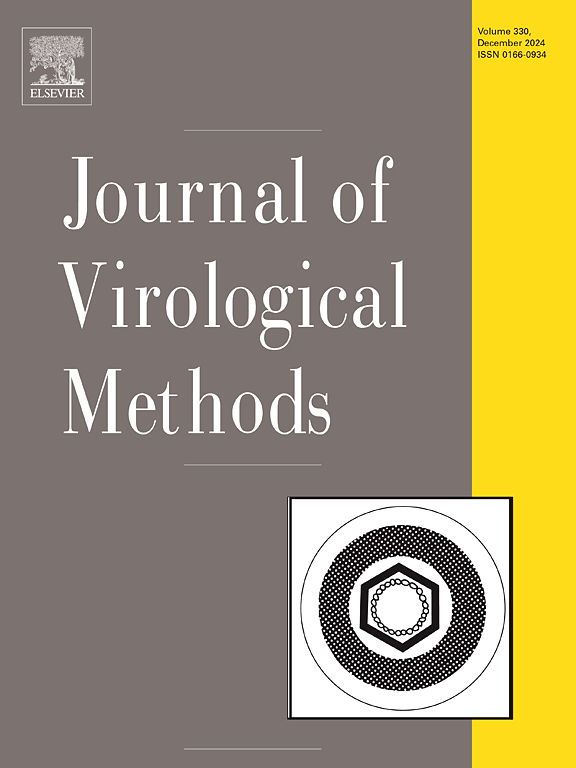A newly developed whole genome sequencing protocol enables early tracking of enterovirus D68 molecular evolution
IF 2.2
4区 医学
Q3 BIOCHEMICAL RESEARCH METHODS
引用次数: 0
Abstract
Background
Human enterovirus D68 (EV-D68) has been associated with an increase in mild-to-severe pediatric respiratory diseases worldwide. The rate of circulation of this virus is largely underestimated in the population and genetic evolutionary data are usually available only for partial sequences. To achieve a timely genomic surveillance, a reliable, high-throughput EV-68 sequencing assay is required. Here we report an improved high-throughput EV-D68 whole-genome sequencing assay performed directly on clinical samples that is suitable for short-read sequencing platforms. Between June and December 2022, a total 37 (1.9 %) respiratory samples were EV-D68 positive and together with 52 additional samples with a median cycle of quantification (Cq) of 28.3, ranging from 18 to 36.8 Cq were included in the validation analyses. Overall, all the primers had good performance and no mismatches were detected in more than 85 % of sequences (932 whole-genome dataset). Using a cut-off of Cq < 32 in at least 85.5 % of samples a whole-genome or partial genome was obtained, confirming an acceptable positive sequencing rate for the designed method. A total of 65 whole-genome sequences were obtained and have a mean coverage of 98.4 % across the genome, with a median depth of 6158x (range 2815x-7560x). Based on the obtained data, this method is cost effective resulting in an easy-to-perform protocol helpful for tracing the evolution of EV-D68 in protein different from VP1. EV-D68 could become a significant pathogen for public health in the next future, and thus this protocol for whole genome sequencing could help clinical and molecular virologists to be ready for molecular epidemiology surveillance.
求助全文
约1分钟内获得全文
求助全文
来源期刊
CiteScore
5.80
自引率
0.00%
发文量
209
审稿时长
41 days
期刊介绍:
The Journal of Virological Methods focuses on original, high quality research papers that describe novel and comprehensively tested methods which enhance human, animal, plant, bacterial or environmental virology and prions research and discovery.
The methods may include, but not limited to, the study of:
Viral components and morphology-
Virus isolation, propagation and development of viral vectors-
Viral pathogenesis, oncogenesis, vaccines and antivirals-
Virus replication, host-pathogen interactions and responses-
Virus transmission, prevention, control and treatment-
Viral metagenomics and virome-
Virus ecology, adaption and evolution-
Applied virology such as nanotechnology-
Viral diagnosis with novelty and comprehensive evaluation.
We seek articles, systematic reviews, meta-analyses and laboratory protocols that include comprehensive technical details with statistical confirmations that provide validations against current best practice, international standards or quality assurance programs and which advance knowledge in virology leading to improved medical, veterinary or agricultural practices and management.

 求助内容:
求助内容: 应助结果提醒方式:
应助结果提醒方式:


